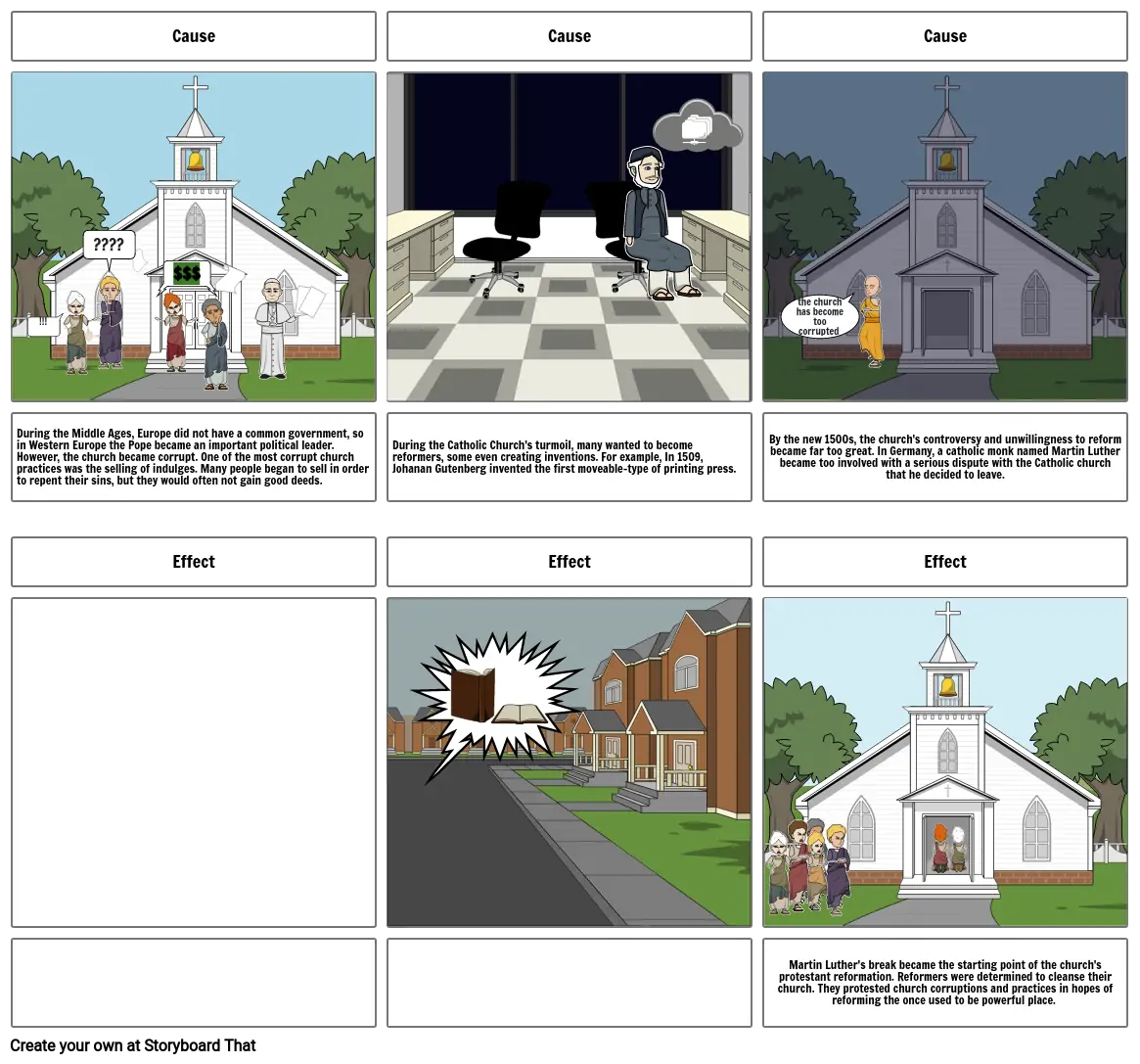Causes and Effects of Protestant Reformation

Storyboard Text
- Cause
- !!!
- ????
- $$$
- Cause
- Cause
- the church has become too corrupted
- During the Middle Ages, Europe did not have a common government, so in Western Europe the Pope became an important political leader. However, the church became corrupt. One of the most corrupt church practices was the selling of indulges. Many people began to sell in order to repent their sins, but they would often not gain good deeds.
- Effect
- During the Catholic Church's turmoil, many wanted to become reformers, some even creating inventions. For example, In 1509, Johanan Gutenberg invented the first moveable-type of printing press.
- Effect
-
- By the new 1500s, the church's controversy and unwillingness to reform became far too great. In Germany, a catholic monk named Martin Luther became too involved with a serious dispute with the Catholic church that he decided to leave.
- Effect
- During the Middle Ages, these acts went unquestioned. However, during the Renaissance the catholic church went under fire. Many criticized the church corruptions and their teachings. Many felt the need to reform, and the church had lost its powerful standing.
- Since this was the first incident of a moveable printing press, knowledge spread out faster, specifically Erasmus book; the Praise of Folly. The Praise of Folly was a book that would end all corruptions. In 1453, Erasmus book had spread throughout Europe. It led to many noticing and acknowledging the need to reform the church
- Martin Luther's break became the starting point of the church's protestant reformation. Reformers were determined to cleanse their church. They protested church corruptions and practices in hopes of reforming the once used to be powerful place.
- REFORM!! REFORM!!
Over 30 Million Storyboards Created

